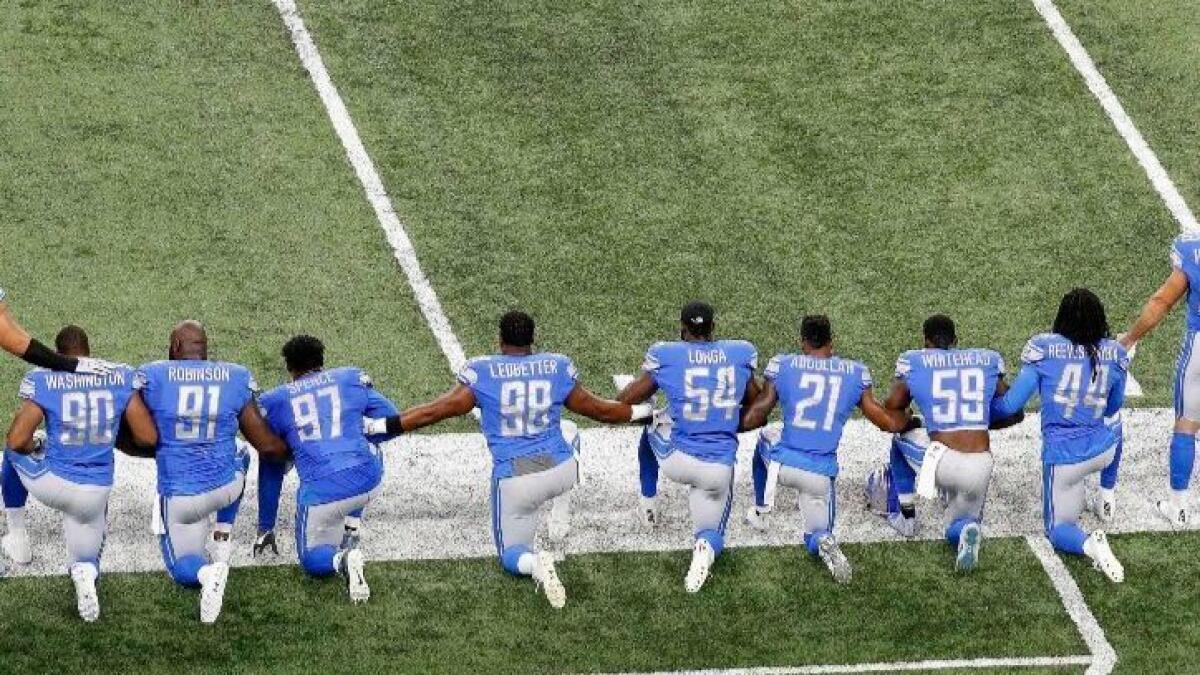U.S. athletes will face strict rule against protests at Winter Olympics

- Share via
Olympic regulations could make it tough for U.S. athletes at the upcoming Winter Games to take on President Trump in the manner that NFL players did over the weekend.
Rule 50 of the Olympic Charter states: “No kind of demonstration or political, religious or racial propaganda is permitted in any Olympic sites, venues or other areas.”
U.S. Olympic Committee leaders — gathered in Park City, Utah, for a media summit — said Monday they don’t expect American athletes to violate the rule in Pyeongchang, South Korea, but also insisted that they support what has been happening across the U.S.
“I think the athletes you see protesting are protesting because they love their country, not because they don’t,” said Scott Blackmun, the committee’s chief executive.
The issue has gained momentum since Trump — speaking at a rally in Alabama — challenged NFL owners to fire any player who takes a knee during the playing of the national anthem. The players maintain the demonstrations protest racial inequality; Trump says they disrespect the flag and the country.
The league has no rule against players protesting, which they did by kneeling, locking arms or remaining in the locker room during the anthem. In some cases, they were joined by team owners.
Veteran alpine skier Julia Mancuso said she looks up to athletes who take a stand, but believes her sport is different.
“When it comes to the Olympics, I’d like to think it’s a special event,” the gold medalist said. “Not like pro sports teams that compete every weekend.”
Teammate Laurenne Ross had a different outlook, saying she wouldn’t be surprised if a U.S. athlete protests while receiving a medal.
“Part of me would be proud of that person for standing up or kneeling, or whatever, for their rights and using their voice,” Ross said. “Part of me would be a little bit heartbroken that we are being torn as a nation and we are doing these actions that make us seem that we’re not one anymore.”
After the 2016 Summer Olympics, USOC leaders reached out to Tommie Smith and John Carlos, who gained fame for raising their raised fists on the podium in Mexico City in 1968. The former athletes were invited to accompany the 2016 American team to the White House.
“We certainly recognize the rights of the athletes to express themselves,” Blackmun said.
Follow @LAtimesWharton on Twitter
More to Read
Go beyond the scoreboard
Get the latest on L.A.'s teams in the daily Sports Report newsletter.
You may occasionally receive promotional content from the Los Angeles Times.







